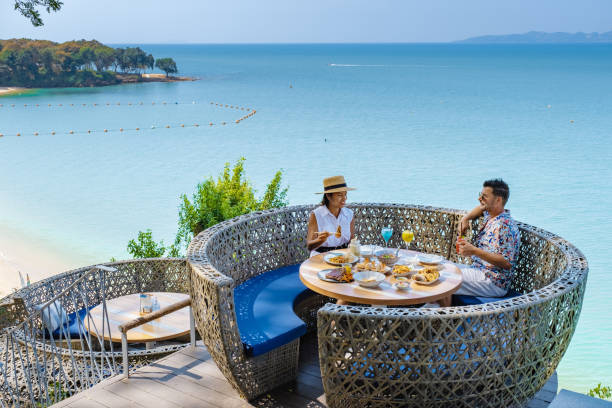All-Inclusive Vacations: A Complete Guide to Hassle-Free Travel
All-inclusive vacations offer travelers a simplified approach to planning getaways by bundling accommodations, meals, drinks, and activities into one comprehensive package. This travel style has gained popularity among families, couples, and solo travelers seeking convenience and budget predictability. Understanding the benefits, inclusions, and selection process can help you determine whether an all-inclusive vacation aligns with your travel preferences and financial goals.

Why Book an All-Inclusive Vacation?
The primary appeal of all-inclusive vacations lies in their convenience and financial transparency. When you book an all-inclusive package, you pay one upfront price that covers most vacation expenses, eliminating the need to constantly budget for meals, drinks, and activities during your trip. This approach particularly benefits families with children, as parents can relax knowing that food and entertainment are readily available without additional costs.
Budget predictability represents another significant advantage. Traditional vacations often involve unexpected expenses that can quickly exceed initial budgets. All-inclusive packages help travelers avoid these surprises by including major costs upfront. Additionally, many resorts offer premium experiences like water sports, fitness classes, and evening entertainment that would typically require separate fees at traditional hotels.
The stress-free planning aspect cannot be overlooked. All-inclusive resorts handle meal planning, activity coordination, and entertainment scheduling, allowing guests to focus entirely on relaxation and enjoyment rather than logistics.
What’s Typically Included?
All-inclusive packages generally cover accommodations, all meals, snacks, alcoholic and non-alcoholic beverages, and basic resort activities. Most resorts feature multiple restaurants offering various cuisines, from casual beachside grills to upscale specialty dining establishments. Room service is often included, providing flexibility for guests who prefer dining privately.
Beverage packages typically encompass soft drinks, coffee, tea, beer, wine, and cocktails made with standard liquors. Premium alcohol brands may require additional fees at some resorts. Many properties also include non-motorized water sports like kayaking, snorkeling equipment, and paddleboarding.
Entertainment options frequently feature live music, dance classes, games, and themed events. Kids’ clubs with supervised activities are standard at family-oriented resorts, while adult-only properties may focus on spa services, wine tastings, and cultural experiences.
However, certain services typically require additional fees, including spa treatments, premium dining experiences, off-resort excursions, motorized water sports, and premium alcohol brands. WiFi, laundry services, and airport transfers may also incur extra charges depending on the resort and package level.
Comparing All-Inclusive vs. Self-Guided Travel
The choice between all-inclusive and self-guided travel depends on personal preferences, travel style, and destination factors. All-inclusive vacations excel in tropical beach destinations where resorts offer comprehensive amenities and guests prefer staying on-property. They work particularly well for relaxation-focused trips, family vacations with young children, and travelers who enjoy predictable budgets.
Self-guided travel offers greater flexibility and cultural immersion opportunities. Independent travelers can explore local restaurants, markets, and attractions while creating customized itineraries. This approach often provides more authentic cultural experiences and the freedom to change plans spontaneously.
Cost considerations vary significantly based on destination and travel style. All-inclusive packages may offer better value in expensive destinations where dining and activities carry premium prices. However, budget-conscious travelers who prefer street food, local transportation, and free activities might find self-guided travel more economical.
Time investment differs considerably between approaches. All-inclusive vacations require minimal planning beyond resort selection, while self-guided travel demands extensive research, booking coordination, and ongoing decision-making during the trip.
How to Select the Right Package
Choosing the appropriate all-inclusive package requires careful consideration of several factors. First, identify your travel priorities, whether they focus on relaxation, adventure, cultural experiences, or family activities. Different resorts specialize in various vacation styles, from romantic adults-only properties to action-packed family destinations.
Location significantly impacts your experience and costs. Caribbean destinations like Jamaica, Mexico, and the Dominican Republic offer numerous all-inclusive options with competitive pricing. European and Asian all-inclusive resorts may provide different cultural experiences but often at higher price points.
Research resort reviews from multiple sources, paying attention to recent feedback about food quality, service standards, and facility maintenance. Consider the resort’s size, as smaller properties often provide more personalized service while larger resorts offer more dining and entertainment variety.
Examine package details carefully, noting what’s included and excluded. Some resorts charge resort fees or require reservations for specialty restaurants, while others offer unlimited access to all amenities.
| Resort Chain | Typical Daily Rate (per person) | Key Features |
|---|---|---|
| Sandals | $400-800 | Adults-only, premium service, multiple restaurants |
| Club Med | $300-600 | Family-friendly, extensive activities, kids’ programs |
| Iberostar | $250-500 | Family and adults-only options, cultural experiences |
| Dreams Resorts | $200-450 | All-age properties, unlimited dining, premium locations |
| Secrets Resorts | $350-700 | Adults-only, luxury amenities, swim-up suites |
Prices, rates, or cost estimates mentioned in this article are based on the latest available information but may change over time. Independent research is advised before making financial decisions.
Timing your booking can significantly impact costs, with shoulder seasons typically offering better value than peak holiday periods. Consider package inclusions like airport transfers, excursions, and room upgrades that might provide additional value.
All-inclusive vacations offer an excellent option for travelers seeking convenience, budget predictability, and comprehensive resort experiences. While they may not suit every travel style or destination, understanding their benefits and limitations helps you make informed decisions. By carefully evaluating your priorities, researching options thoroughly, and comparing packages, you can select an all-inclusive vacation that delivers memorable experiences while meeting your specific needs and budget requirements.






